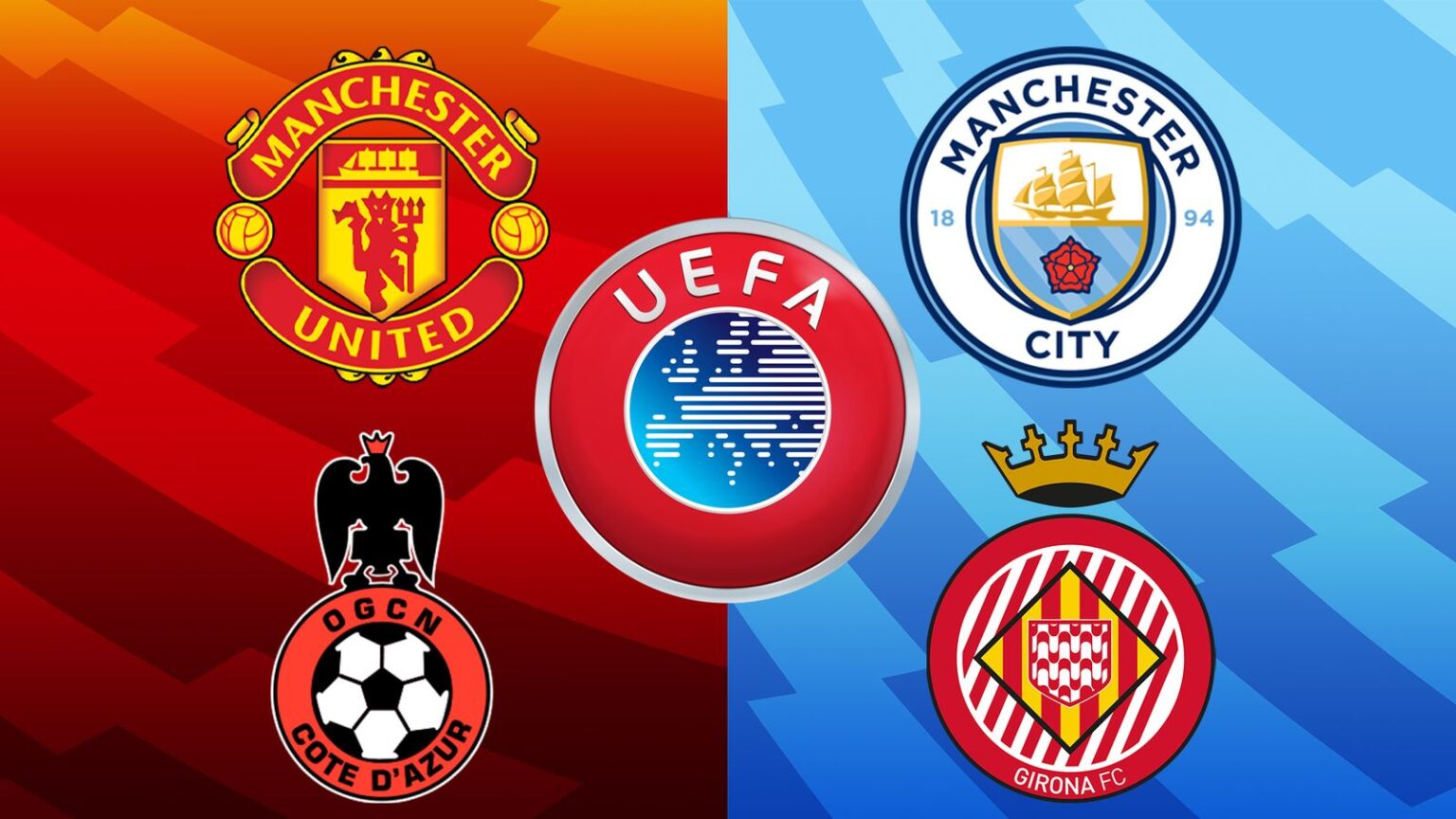Football News: Manchester United Risks Dropping to Conference League, City Faces Champions League Dilemma
Manchester United’s European Ambitions in Jeopardy
In a twist of football governance, Manchester United and Manchester City’s European ambitions for next season have come under scrutiny due to their ownership structures.
Manchester United qualified for the Europa League by winning the FA Cup, beating rivals Manchester City 2-1 in the Wembley final on May 25. However, the Red Devils now face the risk of being relegated to the UEFA Conference League instead.
The issue arises from the fact that United’s new minority investor, Sir Jim Ratcliffe’s INEOS group, also owns a majority stake in French club Nice. Under UEFA’s multi-club ownership rules, no individual or entity can have control or decisive influence over more than one club in the same European competition.
Manchester City Faces Similar Dilemma
Meanwhile, Manchester City and Girona, who have both qualified for the Champions League, are also facing a similar dilemma. The City Football Group, a subsidiary of the Abu Dhabi United Group, owns the majority of Premier League champions City, as well as a 44.3% stake in LaLiga club Girona.
UEFA’s strict guidelines prohibit two clubs under the same ownership structure from competing in the same European tournament.
Ownership Restructuring Deadline Looms
Both United and City have until the June 3 deadline to present UEFA with plans to restructure their ownership and compliance with the rules. If the plans are not satisfactory, only one of the partner clubs will be allowed to compete in the higher-level competition.
In United’s case, that would mean Nice taking their Europa League spot, and the Red Devils being relegated to the UEFA Conference League. Similarly, Girona would have to drop down to the Europa League, with Athletic Bilbao taking their Champions League place.
Ownership Challenges in European Football
This issue is not new to European football. Aston Villa and Vitoria de Guimaraes, as well as Brighton and Union Saint-Gilloise, have previously had to restructure their ownership to comply with UEFA’s regulations. AC Milan and Toulouse were also allowed to compete in Europe together after finding an independent third-party investor to balance the shares.
The coming weeks will be crucial for Manchester United and Manchester City as they navigate this complex ownership structure challenge, with potential ramifications for their European campaigns next season.
🔗 Source
